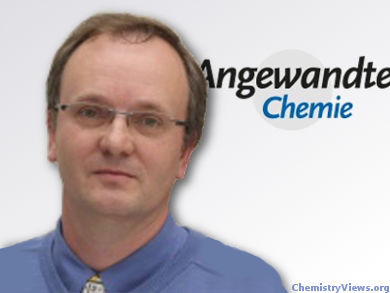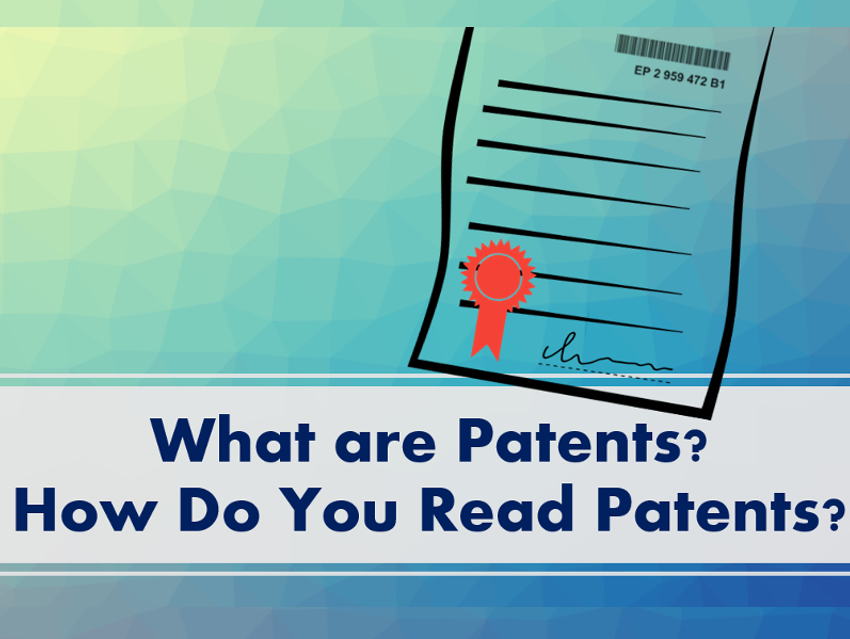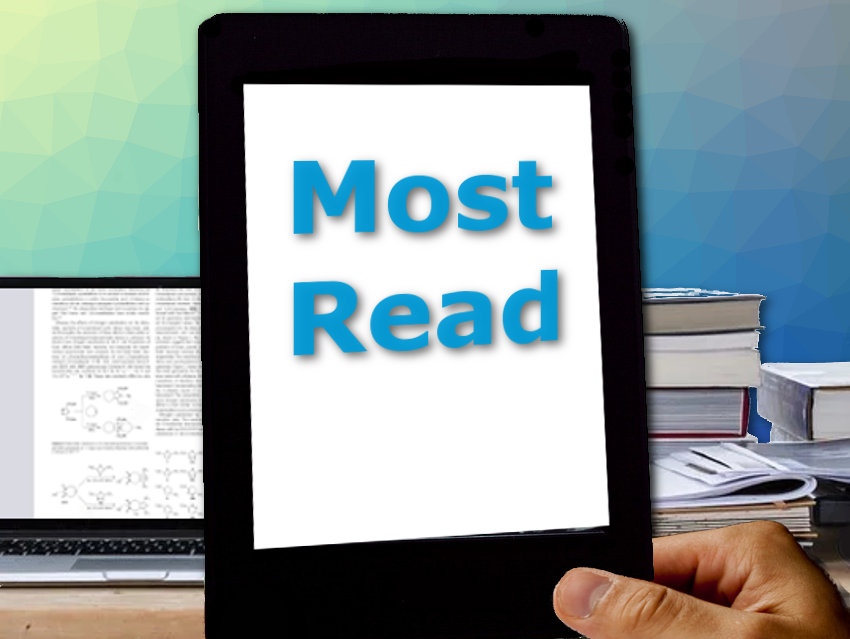Dr. Neville Compton has been the Editor-in-Chief of Angewandte Chemie for one year. Dr. Christian Remenyi, Nachrichten aus der Chemie, asked him where he intends to take the flagship journal of the German Chemical Society (GDCh) in times of predatory publishers, peer review crisis, and preprint servers.
Scientific publishing is a huge topic for those involved in it, but it’s a different case in the public domain. Nevertheless, there was a huge media response recently when journalists found that about 5000 German scientists have published with predatory publishers. Not very good publicity, is it?
It’s good that the topic has come out in public, because predatory publishers are becoming more of a problem. They try to make money through open access and attract scientists, but what is published there is worth little if anything. Even I get calls from predatory publishers to write articles. They find my name and my e-mail address in an Angewandte editorial, and presto, there’s a machine-generated e-mail, in which it is already clear from the tone that there is absolutely nothing behind it. There have also been cases where scientists were suddenly listed as members of the editorial boards in the journals of these predatory publishers, simply because they clicked the wrong link when answering an e-mail. Some predatory publishers are extremely uncompromising: Who does not explicitly object is at once with them, without wanting to be.
Is there not a risk that predatory publishers discredit all scientific publishing?
From the public’s point of view, that may be the case. But within the community, most scientists are fortunate to know exactly which journals and publishers are serious.
But reputable publishers also have to cope with dubious behavior, such as duplicate submissions or even plagiarism.
True. However, since word has spread that we – and others such as the Royal Society of Chemistry (RSC) and the American Chemical Society (ACS)—are using software to detect plagiarism, this situation has improved considerably. Two or three years ago that was more of a problem.
Is plagiarism always an intention to deceive? A few years ago, a group once argued that they did not plagiarize, but rather: “We’ve just borrowed better English.”
An inability to write in a foreign language does of course exist. Sometimes authors are tempted to say: Oh, that’s a nice phrase, I’ll use that. However, you can and must cite honestly. But we also have examples where another publication serves as a template: only the specific compounds are exchanged, and the remaining passages are almost identical.
Are there sanctions for those who are caught?
Yes: in certain cases, for example, a publication ban of one or two years, particularly for repeat offenders.
Publishing in the Systemic Crisis
“Quality first” has been the mantra of Angewandte for years; equally loud, however, is the complaint that the flood of publications can no longer be controlled anymore. Is there a way out?
The number of contributions currently in the system is huge. We and other journals are trying to cope with this by developing transfer systems: This means that a contribution within our publishing group may only have to be peer-reviewed once, and it then goes to the appropriate journal if the author agrees. This is much more efficient than reviewing a contribution in three or four different journals, and perhaps even with multiple publishers.
The quality, however, depends heavily on the long-established (some would say archaic) system of peer review. Is unpaid peer review still viable in the future?
Yes. But it is especially important to distribute review requests fairly.
That was the catch in the past: it is reviewers from Germany and the USA above all who bear the brunt.
That’s true. We need to involve more reviewers, especially from China; and first steps in this direction are in progress with our editorial office for Angewandte in Shanghai.
Wiley-VCH’s Materials Science journals have had an office in Beijing for a few years now. But this is new for Angewandte, is it not?
That’s right. The new Editorial staff will be responsible for the chemistry journals. The first employees started there last year for Chemistry – A European Journal and Chemistry Select, and now the first has been added for Angewandte Chemie. Above all, we want to strengthen the standard of our peer review in China and win over many qualified reviewers, and we also want to look to get even more of the best chemistry from China.
That could be worthwhile. I’ve seen statistics from Angewandte that show that 90 % of Chinese peer reviewers are currently also providing a report, in contrast to only half of the Americans contacted …
I suspect that this has to some extent cultural reasons. From Japan as well we have very high delivery rates from the reviewers; in Asia, there is obviously a very dutiful attitude towards inquiries. On the other hand, in the case of China, the country is still catching up in science and still growing. Angewandte has a very high status there, and so it is also a question of reputation, there is a degree of honor to peer review for Angewandte. You do not just ignore a request.
So Chinese reviewers are supposed to save the peer review system shortly before (as is often heard in Germany) it implodes?
The current peer-review system is the best we have. Ideally, it would be a zero-sum game, a fair give-and-take: scientists benefit from the expertise of others for their own manuscripts, and they also examine the manuscripts of others.
Can the Crowd Do It?
Nevertheless, the system does not seem to be so perfect, because there are currently some experiments on different peer review, such as crowd-based peer review variants or double-blind peer review, in which the reviewer does not know the names of the authors.
We’re watching this experiment that the RSC has started at Chemical Communications and will analyze what the positive aspects are and what the negative ones are. Anyone who chooses double-blind peer review must rewrite manuscripts significantly to disguise themselves as authors. Is this effort worthwhile if most authors simply want to see their contributions published as quickly as possible? My own feeling is that in most cases it is possible to tell who the author is from the cited literature.
And what about crowd-based solutions?
That’s more interesting. Basically, the establishment of pre-print servers goes in this direction. But there as well you have to wait and see: Is it good for science that more people give their opinion on a pre-print-published article? Will the scientists use this opportunity? Does the quality of posts inevitably increase? Only time will tell.
Angewandte Chemie has undergone a change in direction following the arrival of the chemistry pre-print server ChemRxiv. For publication in Angewandte, previous pre-print publication is no longer a knockout criterion. Why?
The board of the German Chemical Society (GDCh) decided to join the RSC and ACS in the ChemRxiv project. Once that this had been decided I think it’s right that the GDCh and its flagship journal Angewandte Chemie move together in one direction in shaping how chemical publishing develops.
ChemRxiv is largely owned by the American Chemical Society, ACS, but its main journal, JACS, did not initially want to consider pre-print-published communications.
Yes, that’s true, but now most ACS journals, including JACS, welcome the pre-print server and see no problems with their publishing practices. All I can say is that the response to Angewandte’s decision from the community was incredibly positive. I had spread the decision on Twitter shortly before the ACS meeting in New Orleans in March and had 70,000 responses within two days—the overwhelming majority welcomed the decision. I think it is very positive and important that the Angewandte is perceived as open-minded and innovative. Perhaps the colleagues at JACS were just too conservative at first.
Well, there are a couple of arguments against pre-prints.
Absolutely. As an editor, for example, I’m not a fan of pre-print servers. It would be less complicated if only one version existed, namely the final version that contained the results you can rely on. On the other hand, if you notice that the chemistry community wants this system, then it would be unreasonable to oppose it. In other areas, such as physics, it has been shown to work well.
The chemistry community, however, is seen to be particularly conservative.
I would agree with that, especially in comparison to biology and physics. But these things change; chemists are increasingly willing to try new things. Whether all these things will work is another question.
The success of ChemRxiv is—considering the number of publications—currently quite modest, in June there were 420 articles …
This is true, about 170 of them are published in journals already, and only 4 to date in Angewandte. So we’re not talking about a trend yet, more about an experiment. But I would expect these numbers to grow following the decisions made by Angewandte Chemie and JACS.
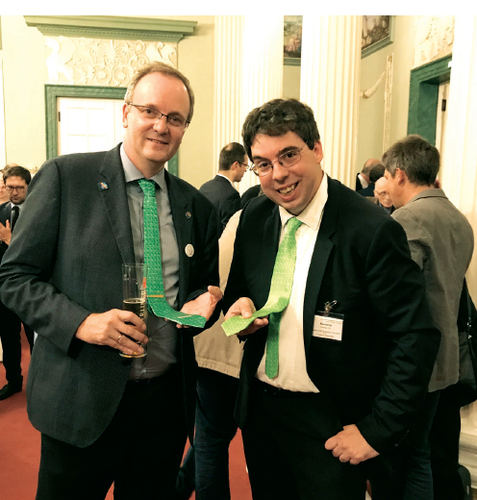
Figure 1. Neville Compton (left) speaking with Nachrichten Editor-in-Chief Christian Remenyi. The picture shows them at the Science Forum 2017 (WiFo) in Berlin, where they established a new Editor-in-Chief tradition: who has the greenest GDCh tie? Photo: Evamarie Hey-Hawkins.
Data and Open Access
In spring, Wiley re-launched its scientific repository Wiley Online Library. There were some teething troubles.
Unfortunately. But the change was overdue, as the data volumes were no longer manageable with the old infrastructure: The Wiley Online Library lists 1600 journals and millions of articles, and that’s not even mentioning the books. Today, the data sets are so large that the processing is increasingly most important: keyword searches, filters, arrangement of data, its comparison. Today, users also need a technical platform that not only allows them to view the published data, but also to extract it from the system for further use.
That also speaks in favor of open access solutions.
Of course, the community is slowly going in that direction, some slower, some faster.
How fast is Angewandte going?
We have about 9 % online open contributions, but the number is increasing. Wiley has negotiated contracts with universities, institutes, and even entire countries that allow us to make open access contributions from all the papers we publish from these places. From the point of view of Angewandte, the most important thing is always assuring the quality of our contributions, and this does not have much to do with Open Access. The big questions in Open Access, on the other hand, have a lot more to do with research funding.
Where Does Angewandte Stand?
Although Angewandte Chemie publishes fine science, the publisher—and the GDCh too—wants to earn money with the journal. You have to differentiate yourself from competitors such as Chemical Communications or Nature Chemistry. But can substantial differences really be found?
Sure. For example, in the case of JACS, Angewandte has the difference that we have an independent and neutral editorial staff. If you submit something to JACS, you have to be careful that the Handling Editor is not a scientific competitor. That is not a problem with Angewandte. Angewandte Chemie also offers more variety for its readers, through our magazine section, the mix of reviews, original publications, highlights, and essays.
You’ve been an admiral on the GDCh flagship journal Angewandte for a year now. So the nasty letters from the authors of rejected papers are coming to you now?
Yes, that’s part of the job. I had been the Editor-in-Chief of Chemistry – A European Journal for almost 15 years, but Angewandte Chemie is a different level, I must say. The more important the journal, the more unhappy people are when they are not getting in. But we have a responsibility to maintain Angewandte Chemie among the top journals in chemistry, and to raise it even further in the future. That means making tough decisions with respect to what we publish and how.
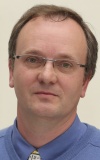
Neville Compton, born in 1965, received his Ph.D. in inorganic chemistry from the University of Newcastle upon Tyne (UK). In 1990, he went to the Universität Heidelberg to do postdoctoral research with Gottfried Huttner.
He joined the editorial office of Angewandte Chemie in 1992. Five years later he became Deputy Editor and in 2002 he also became Editor-in-Chief of Chemistry – A European Journal. Since October 2017, Neville Compton has been Editor-in-Chief of Angewandte Chemie. He is the successor to Peter Gölitz, who had previously headed the editorial office for 35 years.
Angewandte Chemie, a publication of the Gesellschaft Deutscher Chemiker (GDCh, the German Chemical Society), has been published since 1887. With a current impact factor of 12.1, it is one of the world’s leading chemical journals. The publisher of the journal is Wiley-VCH. The publishing house was founded in 1921 as Verlag Chemie by the German Chemical Society amongst others; since 1996 it has been part of the US publishing group John Wiley & Sons.
The interview has been published in German as:
- Interview mit Neville Compton: “Chemiker sind zunehmend bereit, neue Wege auszuprobieren”,
Nachr. Chem. 2018, 66(10), 994–996.
https://doi.org/10.1002/nadc.20184076969
and was translated by Stephen Horner.
